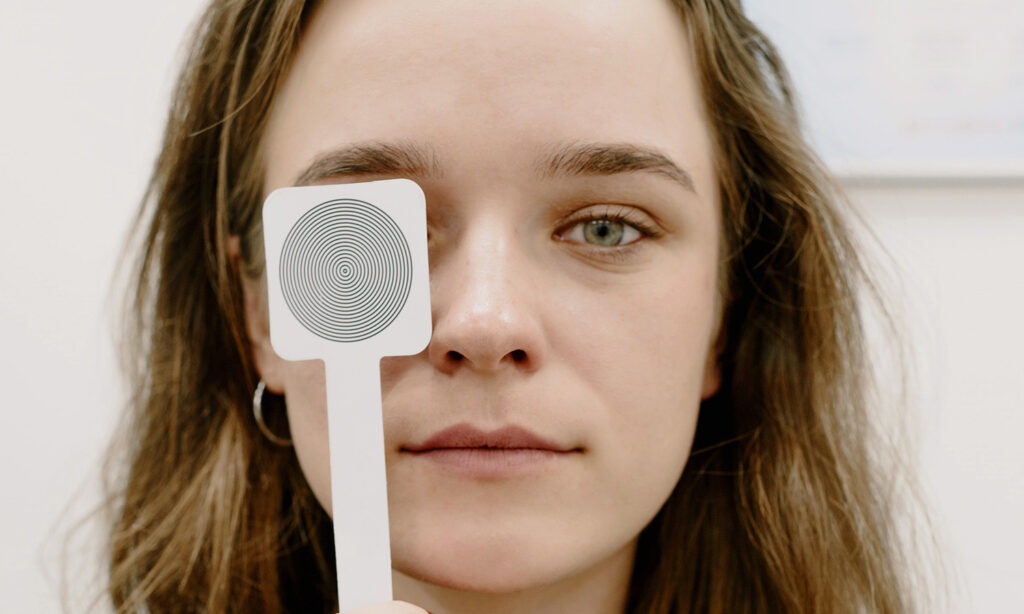
Regular visits to the eye doctor are a critical part of any healthy lifestyle — regardless of your current ability to see. Vision changes can have a profound effect on your day-to-day life, and it’s important to identify and treat these common issues.
Additionally, a comprehensive eye exam with pupil dilation can detect systemic conditions well before you experience other symptoms. Some progressive eye diseases are not immediately apparent, and you should be tested for them during your regular eye examination. And for kids, eye examinations help ensure normal vision development needed for schoolwork and athletics.
Do I Need an Eye Exam?
You should have a routine eye exam every two years, particularly if you’re between the ages of 6 and 20, when changes in vision are common. Many people who are nearsighted or farsighted experience vision changes during this time of their lives. If you’re older than 60, you should have an eye exam each year, as age-related eye problems are common.
Here are some of the most common signs you may need an eye exam.
- Squinting and frowning: Do you need to make a face to read a sign, or recognize a person across the street? That’s a classic sign of myopia, or nearsightedness. If you’re nearsighted, objects far away appear blurry, while those close up seem clear. Nearsightedness can be mild, moderate, or severe. It’s caused by a natural change in the shape of the eyeball. Eyeglasses or contacts can usually correct nearsightedness.
- Trouble reading fine print: If words on a page blur together, you may suffer from hyperopia, or farsightedness. Farsighted people see objects at a distance more clearly than objects close up. Some farsightedness starts in childhood, although normal growth of the eye sometimes corrects the problem. If farsightedness doesn’t improve or gets worse, eyeglasses can help.
- Difficulty seeing in dim light: If you’re nearing middle age, you may notice your eyesight getting worse in low light. That’s a classic sign of presbyopia, or age-related vision loss. At around 40, our eyes take longer to adjust to changes in light. It’s a natural part of aging, no matter what your vision was like before. Presbyopia, or age-related vision loss, is similar to farsightedness but emerges in middle age. It happens when the lenses in your eyes gradually thicken and lose flexibility, decreasing your ability to focus on close objects. Eyeglasses can help you see more clearly.
- Worse vision when you’re tired: Again, blame aging. When you’re young, the muscle surrounding the lens in your eye expands and contracts to focus. With age, the muscle doesn’t work as well, especially when you’re tired. If your age-related vision loss is mild, you may be able to wear over-the-counter “readers” for close work. But if you’re having trouble seeing both up close and far away, your eye doctor may prescribe bifocal or progressive lenses.
- Headaches and eye strain: If you need glasses, you may get mild headaches after reading or being on the computer for extended periods. Headaches and eye strain are a symptom of both near-sightedness and farsightedness. They often disappear when you get glasses.
It’s tempting to skip or delay eye exams and even blame your vision issues on age, but it’s important to take your eye health seriously at all ages. Some symptoms can be a sign of more serious eye problems. You should see an eye doctor right away if you have any of the following:
- Blurry vision or loss of vision. If you notice it’s more difficult to see things near and/or far away, and perform basic tasks
- Flashing light in your eye
- Eye floaters, or small spots that appear in your vision
- If you’ve been diagnosed with significant health issues, including diabetes, high blood pressure, or thyroid disease
Ensuring potential issues are diagnosed early will help keep you in excellent health and preserve your sight without the need for invasive procedures. While it’s easy to take them for granted, our eyes are essential to living an active life. If it’s been more than two years since your last eye exam, or if you’ve been experiencing changes in your vision, schedule an eye exam with an ophthalmologist today.
Christopher Baloga, DO, is an ophthalmologist with UPMC in North Central Pa. and sees patients at UPMC Cole, 1001 E. 2nd St., Coudersport, Pa. To schedule an appointment with Dr. Baloga, call 814-274-7910. For more information, visit UPMC.com/VisionNCPA.


